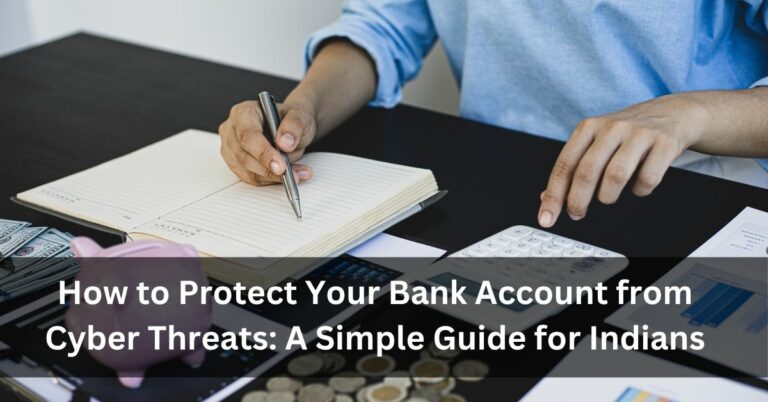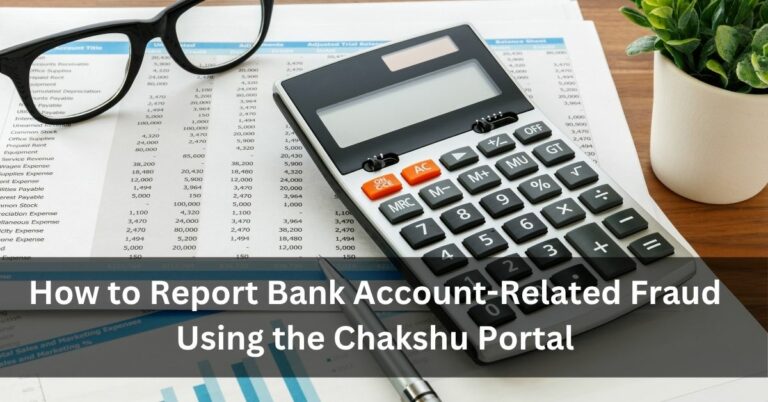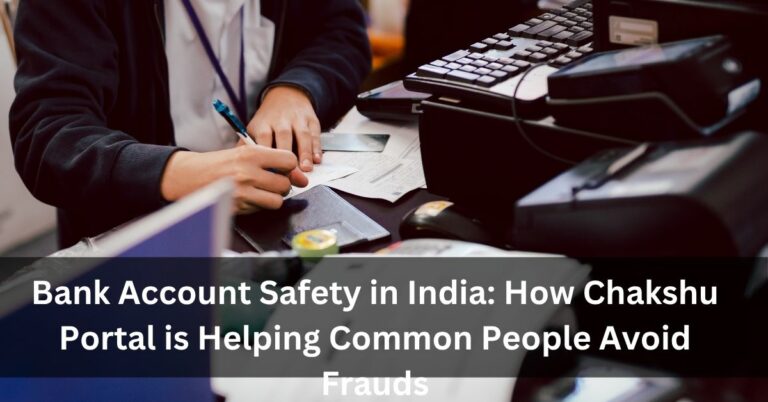How Fake Bank Calls Are Tricking People – What You Need to Know
More and more people in India are getting phone calls from fraudsters pretending to be from their bank. These callers sound very professional. They talk in a calm, convincing way. But behind that voice is someone trying to steal your money.
This type of scam is known as an impersonation fraud. It means the fraudster is pretending to be someone they’re not — usually a bank employee. They call you, message you, or send emails. Their goal is to make you panic and give away your personal banking information.
Let’s understand how these scams work, what tricks they use, and how you can protect your bank account. This information is especially important for people who are not always using digital banking or who may not be familiar with such frauds.
What Is a Fake Bank Official Scam?
A fake bank official scam happens when someone pretends to be from your bank and contacts you. They may call you or send messages and emails. Most of the time, they will say something urgent to make you act fast.
Some common things they might say:
- “Your account will be blocked if you don’t update your KYC now.”
- “You have won a cashback, please click this link to claim.”
- “There is suspicious activity on your account, we need to verify your OTP.”
Once you share your details, the fraudster quickly uses it to transfer money from your bank account.
Real Stories That Happened in India
These scams are not just random stories — real people have lost lakhs of rupees. Here are some actual cases:
- Digital Arrest in Varanasi: A person in Varanasi was told that a case had been filed against them. The caller said they were from the cyber police and if the person didn’t follow instructions, they would be arrested digitally. This scared the person into transferring ₹49 lakh to the fraudsters’ account.
- Fake RBI Officials: In another case, scammers pretended to be from the Reserve Bank of India. They told people their account would be blocked because of suspicious activity. The person was then asked to verify account details and OTP. That’s how they got access to the money.
- Noida Call Centre Scam: A fake call centre was running from Noida where people were trained to pretend to be bank staff. They called people, collected their information, and made them download apps that allowed access to their bank accounts. Total fraud amount: ₹6.5 crore.
These stories remind us how easy it is to trust someone who sounds official. That’s why it’s important to know how to spot such fraud.
Tricks Used by Scammers
The people running these scams are smart. They know how to make you believe them. Here’s what they often do:
- They create fear: They will say something urgent like “your account will be blocked in 1 hour” so that you don’t think twice.
- They use professional language: They talk like a real bank employee and even use terms like KYC, RBI, cyber cell, etc.
- They send fake links: These links look like your bank’s official website but are actually fake pages that collect your login or card details.
- They call from real-looking numbers: They use tools to show a number similar to your bank’s customer care number.
- They make you download apps: Some scammers ask you to install apps that allow them to control your phone remotely.
How to Stay Safe
You can avoid such scams if you keep a few simple rules in mind. These may seem basic, but they are very effective:
- Never share OTP, CVV, passwords, or full account details with anyone — not even with someone who says they are from your bank.
- Don’t trust links sent on SMS or WhatsApp. Always go to your bank’s official website or use their app.
- If someone calls you and asks for personal details, hang up. Then call your bank using the number on the back of your ATM card or from the official website.
- Do not install apps from unknown sources. Only use Google Play Store or Apple App Store.
- Stay calm. These scammers want to panic you. Take a moment before taking any action.
What to Do If You Get Scammed?
If you think you’ve been tricked, take action quickly:
- Call your bank immediately and inform them. Ask them to block your card or account if needed.
- Dial 1930, the national cyber crime helpline, and report the scam.
- Visit Chakshu Portal to report suspicious calls, messages, or emails. This platform helps report digital frauds and is useful for alerting others.
How Chakshu Portal Can Help
Chakshu Portal is a public resource for reporting and understanding digital frauds. If you get any fake call or message pretending to be from a bank, you can report it there.
The portal gives useful information on different types of frauds happening in India, especially related to bank accounts, payments, and identity theft.
You can visit Chakshu Portal anytime to stay informed and alert. They are adding updates regularly to help users from every part of India.
Final Thoughts
Bank frauds are increasing, but awareness can protect you. Never share your private details with anyone, no matter how official they sound. A real bank will never ask you to share your OTP, password, or full card number on call or SMS.
Keep yourself informed, share this information with your family members — especially elders who may not know about such frauds — and use Chakshu Portal as your go-to place for updates and reporting online fraud.
Being careful is the best way to keep your money safe.







